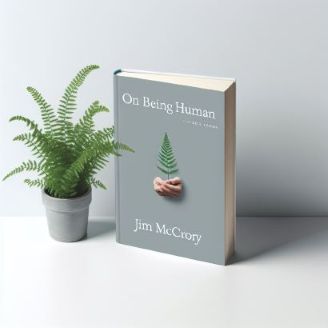We know we can vanish.
And we know we can return.

I left This World and Returned
I was rolled into the pre-op theatre, the ceiling tiles above blurring slightly as the trolley moved. A nurse checked my details and, checked the place and the mark the surgeon left where the incision would take place. Soon, this surgeon would enter my innermost parts; the parts I have not visited. The mask over my face and the nurse asked me to count to ten. I got as far as four. Then nothing.
What is time in this place I moved to. I woke and like Rip Van Winkle, I didn’t know what day, month, or year it was. Was I dead? Is this the place the Bible character Job referred to as the "renewal"; I don't think so, I don't want to leave like the antelope. Go back to sleep like the sloth more likely.
It wasn’t like sleep, where you slowly come to the surface of your dreams and swim back toward the shore of consciousness. This was more like a door that had slammed shut, a vault in my brain. When it opened again, time itself had been rewritten.
They had pressed the pause button on my brain. It closed down. No dreams, no nightmares no nothing.
What modern medicine calls anaesthesia is a marvel of science, yet it remains, in some ways, a mystery. General anaesthetic doesn’t simply lull you into rest. It shuts down awareness, sensation, memory, and time. Unlike natural sleep, where the brain cycles through phases and dreams, anaesthesia induces a kind of artificial void—a medically induced coma. It is deliberate, controlled unconsciousness. And in that state, the self disappears.
The drugs work fast. Inhaled agents like sevoflurane or intravenous ones like propofol travel to the brain and begin switching things off—like a janitor switching off lights in a tall building and the lights going out one floor at a time. The cerebral cortex and the thalamus, the parts of the brain responsible for thought, perception, and awareness, are silenced. The hippocampus, the memory-keeper, is blocked from recording anything. The networks that give rise to pain, fear, and movement are unplugged. The result is a total absence of experience.
And yet, we trust them to bring us back.
Waking from anaesthesia feels like being rebooted. The body awakens before the soul quite catches up. For a moment, you’re a blank page, your mind fumbling for the first word of a sentence. There is no sense of having rested. Just a gap. A cut in the filmstrip of memory.
It’s a strange thing—to know that someone, somewhere, has held your life on pause. It humbles you. You realise just how delicate the machinery of self is, and how easily it can be suspended.
But what strikes me most is the trust we place in others when we go under. We give ourselves over, unconscious, and defenceless, to the care of hands we barely know. In that moment, the body becomes a vessel tended by others, and the self—whatever it is that makes me me—disappears into silence.
And then, it returns. Slowly. Unevenly. Like a sunrise after a long night with no stars.
I’m grateful for the science that made that possible. Grateful, too, for the mystery of it—for the reminder that consciousness is both gift and grace. We go through life assuming continuity, thinking of ourselves as uninterrupted. But every so often, someone presses pause, and we are reminded: we are not machines. We are fragile, luminous flickers of being, entrusted to one another.
And when we come back from the void, blinking in the theatre lights, we know something we didn’t know before.
We know we can vanish.
And we know we can return.